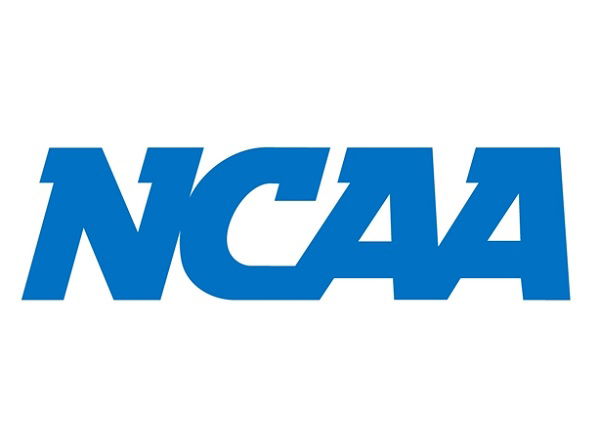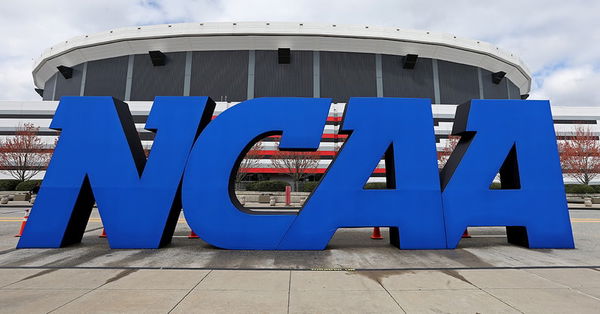

Something real shady is brewing behind those shiny conference logos. Power schools are low-key being handed a pen and told, “Sign this—or get out.” And no, it’s not a lease or an NIL deal. It’s a straight-up “blood oath” contract from the top dogs—SEC, Big Ten, ACC, Big 12—locking schools into new rules with no court escape clause. Even if your state law says you can’t be punished, too bad. If you don’t play ball? Your seat at the power table might be gone. Judge Claudia Wilken hasn’t even ruled yet—and folks are already grabbing popcorn.
Watch What’s Trending Now!
On May 18, Yahoo’s Ross Dellinger dropped a bombshell: the power conferences are drafting a do-or-die contract that binds member schools to a brand-new set of enforcement rules under the NCAA’s looming House settlement. Here’s the twist—schools must waive their right to sue over any enforcement decisions made by the new big boss in town, the College Sports Commission. Yeah, let that cook: even if your state law rides for you, this contract says “nah, we’re the law now.”
ADVERTISEMENT
According to the document floating through the inboxes of presidents, GCs, and ADs, if a school dares to refuse? They could get kicked out the conference. One AD told Yahoo, “You have to sign it… or we don’t play you.” Cold. Another league exec chimed in: “As a condition of membership, you must comply.” Translation? These power leagues aren’t playing nice anymore. They’re building a new club—and if you’re not down with the code, you’re off the invite list.
In a stunning move, the power conferences have drafted a contract that would bind schools to new enforcement rules & require them to waive the right to sue over decisions, sources tell @YahooSports.
Schools not signing may risk conference eviction – https://t.co/ielFzieLBP
— Ross Dellenger (@RossDellenger) May 20, 2025
ADVERTISEMENT
What’s making this even wilder is how this new “Membership Agreement” appears tailor-made to neutralize state laws that were literally passed to protect schools from the very same enforcement. Tennessee just signed one on May 1—quietly, of course. Senate Bill No. 536 lets Volunteer State schools like UT, Vandy, and Memphis flat-out ignore any NCAA or conference rules that conflict with state law. It’s like Tennessee sent a heat-seeking missile at the NCAA’s plan—and the SEC returned fire with an even bigger one.
“Even if Judge Wilken greenlights this settlement, her ruling doesn’t touch whether these new rules hold up under antitrust law,” says Mit Winter, a sports law pro who’s been deep in the NIL trenches. So yeah, buckle up. We’re about to see a legal arms race like college football’s never seen.
ADVERTISEMENT
Power conferences are tired of the Wild West that NIL turned into. Their solution? A no-nonsense enforcement squad—NIL Go, run by Deloitte—that’ll sniff out every shady booster deal and slap hands hard. But this new clearinghouse is already setting off legal sirens. During a recent ACC meeting, Deloitte told schools that 70% of previous booster-backed NIL deals would’ve been low-key denied under the new system. Meanwhile, 90% of deals are with public companies? Those are all good. That’s a huge red flag for every school that’s been quietly paying players under the table through “marketing partnerships.”
Colorado AD Rick George isn’t blind to it either. “We’re already trying to circumvent the rules,” he said bluntly. Baylor’s Mack Rhoades echoed it: “We’re spending $20.5 million and still going to run pay-for-play through collectives? Why even settle then?”
ADVERTISEMENT
What this new agreement really does is handcuff schools to the NCAA’s “professionalized” vision of college sports, while locking the doors on anyone who wants to sneak around it using state laws or loopholes. If you thought the NIL era was messy before, wait till schools start arguing over whether they can be legally kicked out of a conference just for following their own state law.
ADVERTISEMENT
The SEC vs. State rights: Who wins that fight?
Let’s talk Tennessee again. Their shiny new law literally says: no association (read: NCAA or CSC) can mess with a school’s membership status or voting rights just because it doesn’t toe the national enforcement line. Sounds ironclad, right? Not to the SEC, apparently.
The real grenade here is that schools might be forced to sign away their right to follow state law just to stay in their conference. That’s like getting evicted from your own house because the HOA changed the rules overnight. Ramogi Huma of the National College Players Association calls the contract “a literal smoking gun in liability” for public schools. You can’t just ignore state law, sign away your legal rights, and hope a judge says, “Yeah, that checks out.”
ADVERTISEMENT

ADVERTISEMENT
The NCAA tried to dodge this by spinning off enforcement to the College Sports Commission—a shiny new toy with the same old legal problems. Julie Sommer from The Drake Group put it bluntly: “You can leave the NCAA, but you can’t escape the problems of the NCAA.” Big facts. The CSC might have a new name, but it’s still dragging the same antitrust baggage behind it.
There’s one giant domino left: Judge Claudia Wilken. Until she gives the House settlement the green light, this whole contract drama is still technically on pause. But don’t let that fool you—schools are panicking behind closed doors. July 1 is creeping up fast. That’s the day this whole ‘revenue-sharing’ system is supposed to launch, and if Wilken approves it, every school better figure out fast whether they’re signing this contract or rolling the dice.
The pressure is mounting. Joe Castiglione, Oklahoma’s AD, tried rallying the troops at an SEC meeting: “We all must commit to it, or it doesn’t have a chance of working.” But let’s be real—half these schools are already calling their lawyers.
ADVERTISEMENT
And this isn’t just about NIL. It’s about power. State lawmakers wanted control. Now, conferences want it back. Everyone’s throwing haymakers to make sure their side runs college sports. You’ve got states passing laws to dodge enforcement, and conferences turning around and saying, “Sign this paper or get out the league.” It’s a straight-up turf war—governing bodies vs. government bodies.
Affiliation agreement = legal landmine
This whole “Affiliation Agreement” might be the most legally explosive document in college sports history. It doesn’t just set rules. It says, “You can’t sue us if we mess up. You must follow us, not your state. And if you don’t? We’ll kick you out and take your TV money too.” The CSC even wants to avoid lawsuits altogether and force arbitration, because they already know this is headed to court.
And they’re not wrong. With NIL Go deciding what’s “fair market value,” and Deloitte out here bragging about denying 70% of past deals, there’s zero chance this doesn’t trigger a legal inferno. Especially since half the states in the U.S. have NIL laws that directly clash with these new rules. No matter how slick this new era looks on paper, this isn’t peace. It’s just the calm before the courtroom storm. Everyone’s suiting up, and come July 1, we’ll see who’s really holding the whistle.
Let’s be clear: this isn’t just about athletes getting paid or boosters cutting checks. This is about control. Conferences are trying to slam the lid on a boiling pot—before it spills all over their billion-dollar empires. But schools? Especially public ones? They’re stuck in the middle, with state laws pulling one way and conference contracts yanking the other.
In simple terms, big college sports conferences (like the SEC or Big Ten) are working on a new agreement that would make all their member schools follow new rules. These rules would include strong punishments if schools break them. If a school low-key refuses to sign this agreement, the conference could kick them out—even if the state where the school is located has laws that say otherwise.
The House settlement was supposed to fix college sports. Instead, it might blow the whole system wide open. Welcome to the next chapter, where the games are still played on Saturdays, but the real battles are in courtrooms and conference calls.
ADVERTISEMENT
ADVERTISEMENT
ADVERTISEMENT
.png)
.png)
.png)



